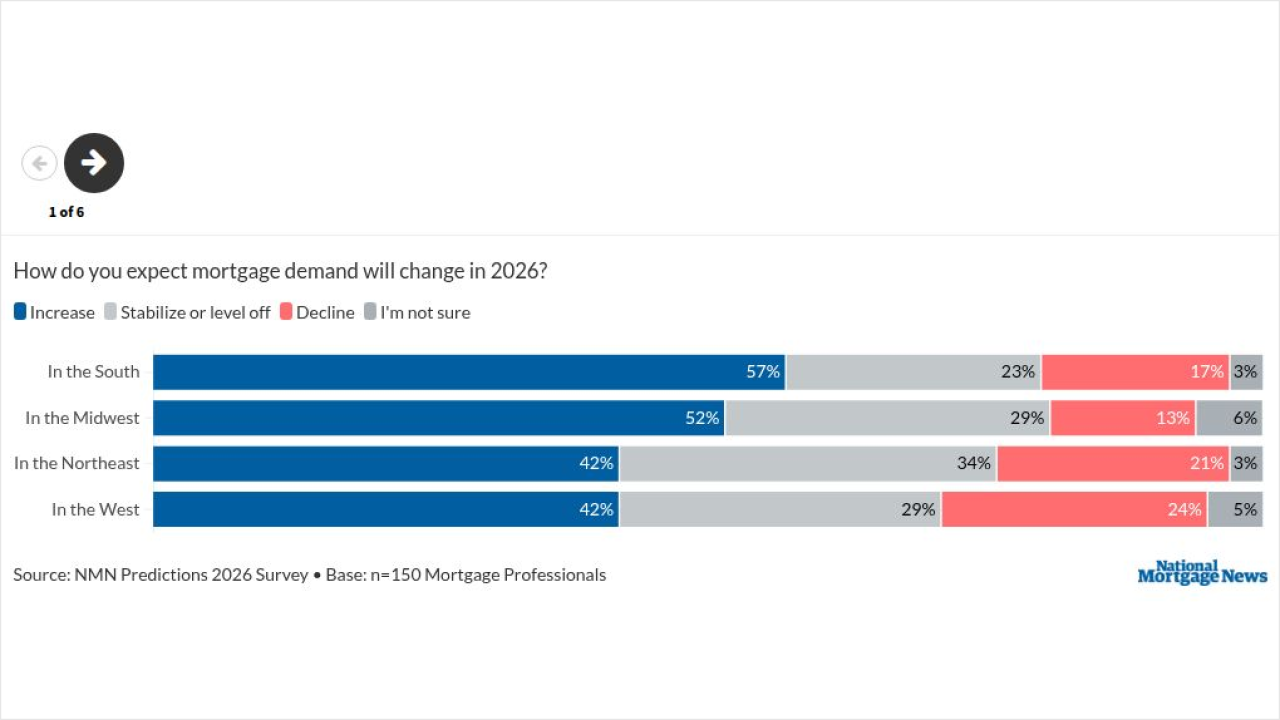A new study provides more food for thought on Fannie Mae and Freddie Mac's plans to qualify borrowers with scores
While the impact of the change on average score may not be material, as previous Federal Housing Finance Agency and
The FHFA has already retreated a little from moving too quickly the idea of allowing the use of two reports, leaving the date for the transition open-ended in
TransUnion would like more time to examine multidimensional impacts around things like the potential costs. Upfront savings from paying for fewer reports, while real, should be weighed against other possible increases in the cost of credit and risk management, the study finds.
"Our analysis surfaces real impact to a substantial number of consumers and before we make a change, we as an industry should weigh in and really understand it," said Joe Mellman, senior vice president and mortgage business leader at TransUnion.
The credit bureau acknowledges the average applicant getting a loan in the conforming market would save around $10 or $20 by dropping a credit report, but said it'd also result in an average increase in expenses for those who'd drop into lower score bands.
TransUnion ran a model that simulated what would happen if 5% of the U.S. population tried to get new home loans based on two credit reports rather than three and found 580,000 people would end up in this category.
Those that did would pay $6,600 more in interest over the lifetime of the loans, TransUnion found, putting a number on its past assertions that this could be a concern with the use of just two reports.
The credit bureau's analysis of data obtained from the earlier S&P study also found that some people would lose mortgage eligibility while others gained it as a result of the random removal of one report from the three used to qualify borrowers using traditional credit scoring.
While almost 1.78 million new people would become newly eligible, another 1.98 million would no longer qualify. Also,178,000 of those in the former category could end up in situations where the two credit reports overestimate the consumer's ability to repay for the loan obtained.
TransUnion determined this by examining which borrowers would've been below the Fannie and Freddie's automated underwriting cutoff of 620 with three reports but ended up above it with two. The randomization assumed the lowest report gets dropped one-third of the time.
Because score changes have the most impact on people with income constraints, which the two government-related loan buyers have a mission to serve, TransUnion considers the impact on even a relatively small number on them to have outsized implications.
"What we're concerned about is if this population is overrepresented in vulnerable communities," Mellman said.
TransUnion found most of the consumers that would see changes have scores close to 620, although it also confirmed that, as S&P had previously indicated, higher tiers would be affected too, albeit to a lesser extent.
Scores at the high end of the range could change by around 20 points, but the number is closer to 45 for the lower tiers.
Some in the industry expect that FHFA and its two charges will make the use of two reports optional for lenders, and many might be loath to stop using three.
On the other hand, for consumers wrestling with affordability challenges due to higher home prices, the upfront savings of having to buy just two rather than three reports could have some value.
Mellman confirmed TransUnion has not tested how dropping one credit report would play out in conjunction with the more modernized scoring models Fannie and Freddie plan to move to by 2025.
"We're one voice in a very large mortgage ecosystem," he said, welcoming other thoughts. "We think we're asking the right questions, but we would like for the entire industry to weigh in because we don't want to make a change that has unintended negative consequences."




